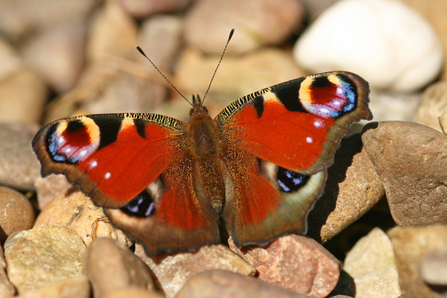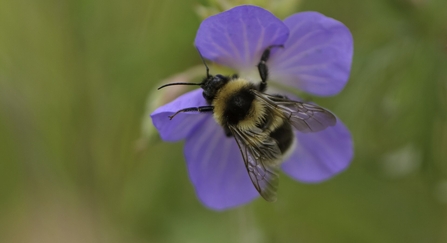I grew up in Edgmond, near Newport, Shropshire, and spent my childhood roaming the lanes and meadows in search of caterpillars, butterflies, grasshoppers and beetles. I eventually came to realize that the world would not function without these tiny creatures; they pollinate, control pests, recycle all sorts of organic material from dung to corpses, tree trunks and leaves, they keep the soil healthy, disperse seeds, and much more besides. They provide food for many larger creatures such as birds, bats, lizards, amphibians and fish.
It should thus be of deep concern to all of us that insects appear to be undergoing massive declines. In Germany, flying insects have declined by 76% in just the last 26 years. In the UK, our more common butterfly populations have fallen by 46% since 1976, the rarer ones by 77%, despite great efforts by conservation organisations such as Butterfly Conservation. Thirteen UK bee species have gone extinct, and more look set to follow them. In the USA, the iconic monarch butterfly, famed for its annual migration between Mexico and Canada, has declined by more than 80% since the 1980s. As a child, I vividly remember my parents having to stop the car on long summer journeys to scrub clear the windscreen, which quickly became crusted with splatted insect corpses as we drove along. Today, our windscreen are disturbingly clean. This has all happened within our lifetime; on our watch.


